Latest News
Red CSCS Cards Explained
Posted on Monday, 30th December 2019

This week, we are going to look at the Red CSCS card and answer all the common questions you might have about them. The CSCS (Construction Skills Certification Scheme) helps to keep construction workers and construction sites safe in the UK.
CSCS cards are issued to people working in the construction industry once they have reached an agreed level of skill or experience, as both a proof of identity and evidence of a nationally recognised standard of competence within the construction industry.
There are several colours of CSCS cards available for different jobs and levels of experience, but in this blog, we are focusing on the temporary red cards before progressing to a skilled CSCS card.
What Is A Red CSCS Card?
Red CSCS Cards are temporary cards for individuals working on construction sites that require proof they are working towards the relevant qualification for the job they do on site.
It is not a legislative requirement to hold a CSCS card, however, the principal contractor will often identify whether they will only allow CSCS card holders on site. These days, most do require a valid CSCS card; so this is always worth checking as soon as possible, and gaining a temporary red card if needed, to support continued employment.
Typically you will need to complete a CITB Health, Safety and Environment test prior to applying for a red CSCS card, sometimes more commonly known as the CITB touch screen test or CSCS safety test, but this is not always the case so check any exemption rules by clicking ‘more info’ on your chosen CSCS Card.
As mentioned, red CSCS cards are only temporary cards which are non-renewable, and are valid anywhere from 6 months to 5 years, whilst you complete your recognised qualification.
Information on the types of recognised construction related qualifications can be found on the CSCS website.
How Many Types Of Red CSCS Cards Are Available?
There are currently 5 different types of red CSCS card available, so we will look at them individually.
Red CSCS Card – Apprentice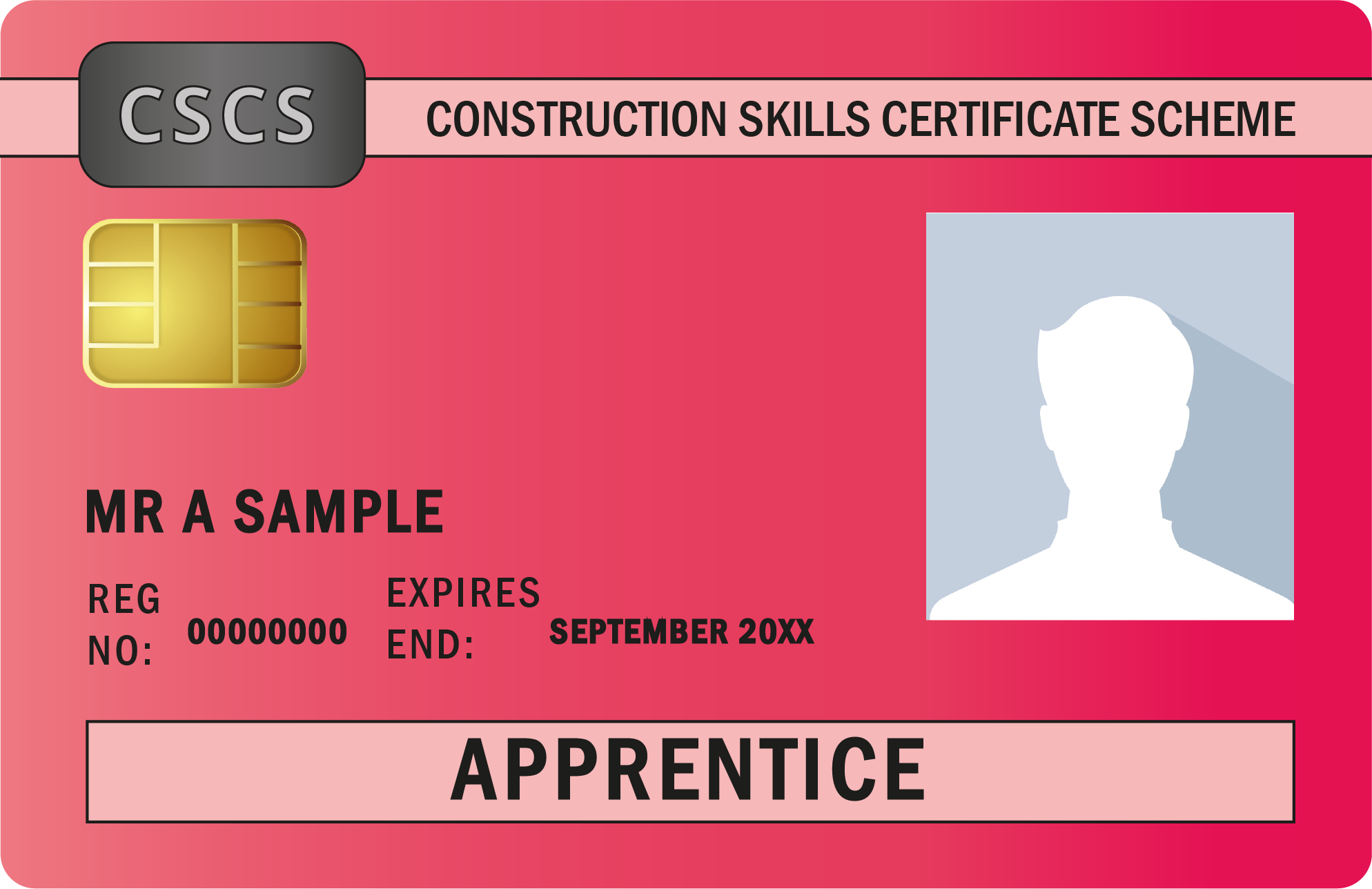
The Apprentice card is for people who have started a recognised apprenticeship framework, they are valid for 4 years and 6 months, and are not able to be renewed. This means that you need to complete your apprenticeship within the timeframe to progress to a skilled CSCS card.
When applying for the Apprentice CSCS card you may be exempt from the CITB HS&E test, you can find more details on exemptions for the apprentice card here.
Red CSCS Card - Experienced Technical, Supervisor or Manager
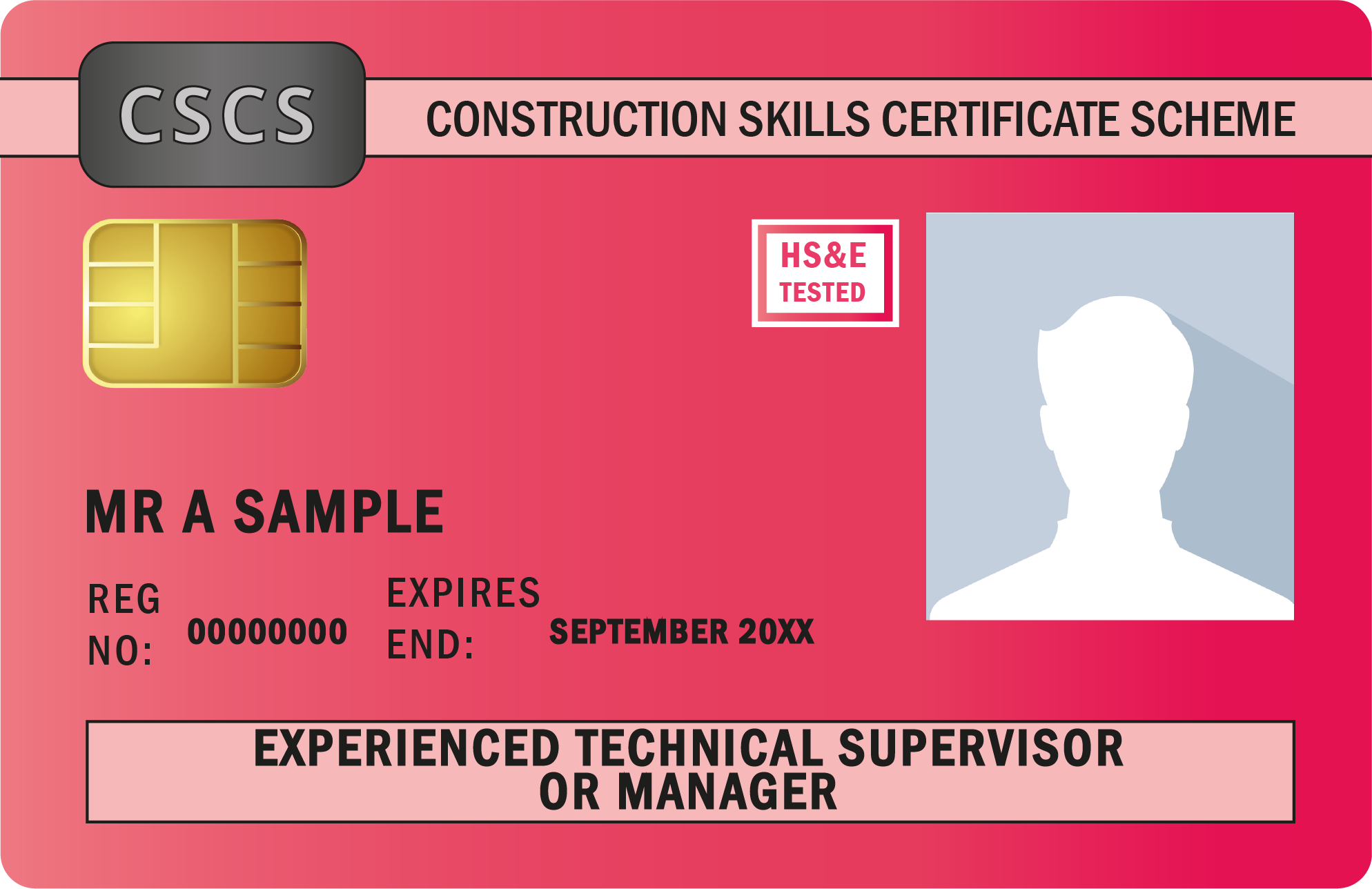 Supervisors, Managers and Technical Workers can apply for this particular card with proof of registration onto an NVQ/SVQ level 3 or higher and who are not an approved member of a Professional Body.
Supervisors, Managers and Technical Workers can apply for this particular card with proof of registration onto an NVQ/SVQ level 3 or higher and who are not an approved member of a Professional Body.
You will need to have at least one year (in the last three years) on the job experience.
Also, you will need to have completed the relevant level of CITB Health, Safety and Environment test in the last 2 years (unless you are exempt – HSE Test and Exemptions).
The card is valid for three years and cannot be renewed, again meaning you should pass your NVQ or SVQ within the 2 years, to progress to a supervisory or management CSCS card.
Red CSCS Card – Experienced Worker
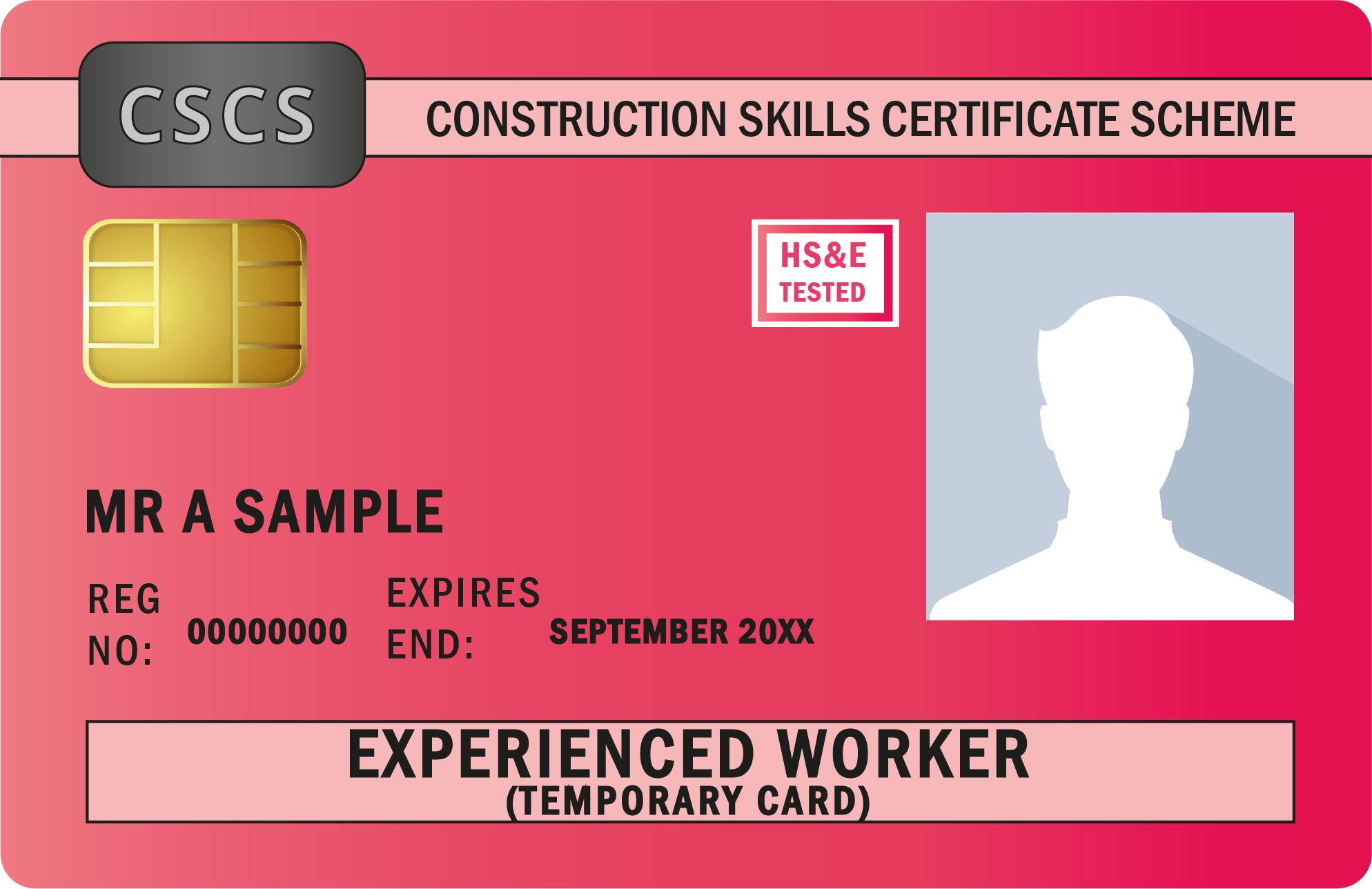 Not to be confused with the Red CSCS Card - Experienced Technical, Supervisor or Manager, this is specifically for workers with on the job experience, that can prove registration onto an NVQ/SVQ level 2 or higher.
Not to be confused with the Red CSCS Card - Experienced Technical, Supervisor or Manager, this is specifically for workers with on the job experience, that can prove registration onto an NVQ/SVQ level 2 or higher.
You will need to have at least one year’s worth of on the job experience in the last three years, and have passed the CITB HS&E test at the appropriate level (exemptions may apply).
This card is only valid for one year and cannot be renewed, so it is expected that the NVQ/SVQ is completed within this timeframe, to progress to a CSCS Skilled Card.
Red CSCS Card – Trainee
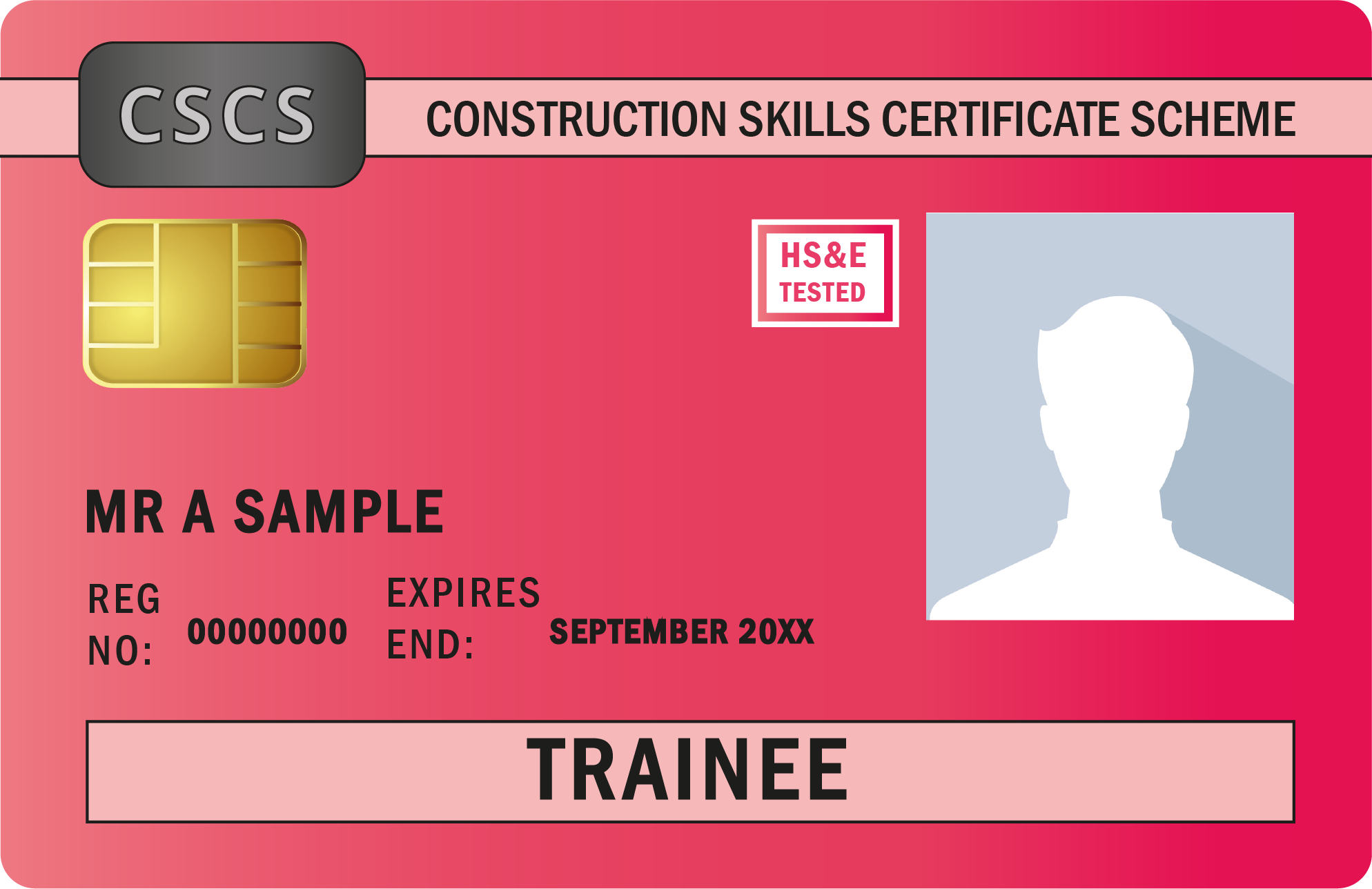 As the name suggests, this temporary card is specifically for trainees and is valid for 5 years. You must also be registered to complete a construction related qualification.
As the name suggests, this temporary card is specifically for trainees and is valid for 5 years. You must also be registered to complete a construction related qualification.
The qualification you are studying may be either vocational, academic or professional, but it must be acceptable to CSCS to apply for a Trainee Card. You can find more details about the types of qualifications CSCS will accept here.
Before applying for this can you must also have passed the Operative level CITB Health, Safety and Environment test within the last 2 years (exemptions may apply).
This card cannot be renewed, so it expected that within 5 years you will have progressed within your chosen career, along with increased knowledge and skills to be able to apply for the relevant skilled worker card applicable to your role.
Red CSCS Card – Provisional
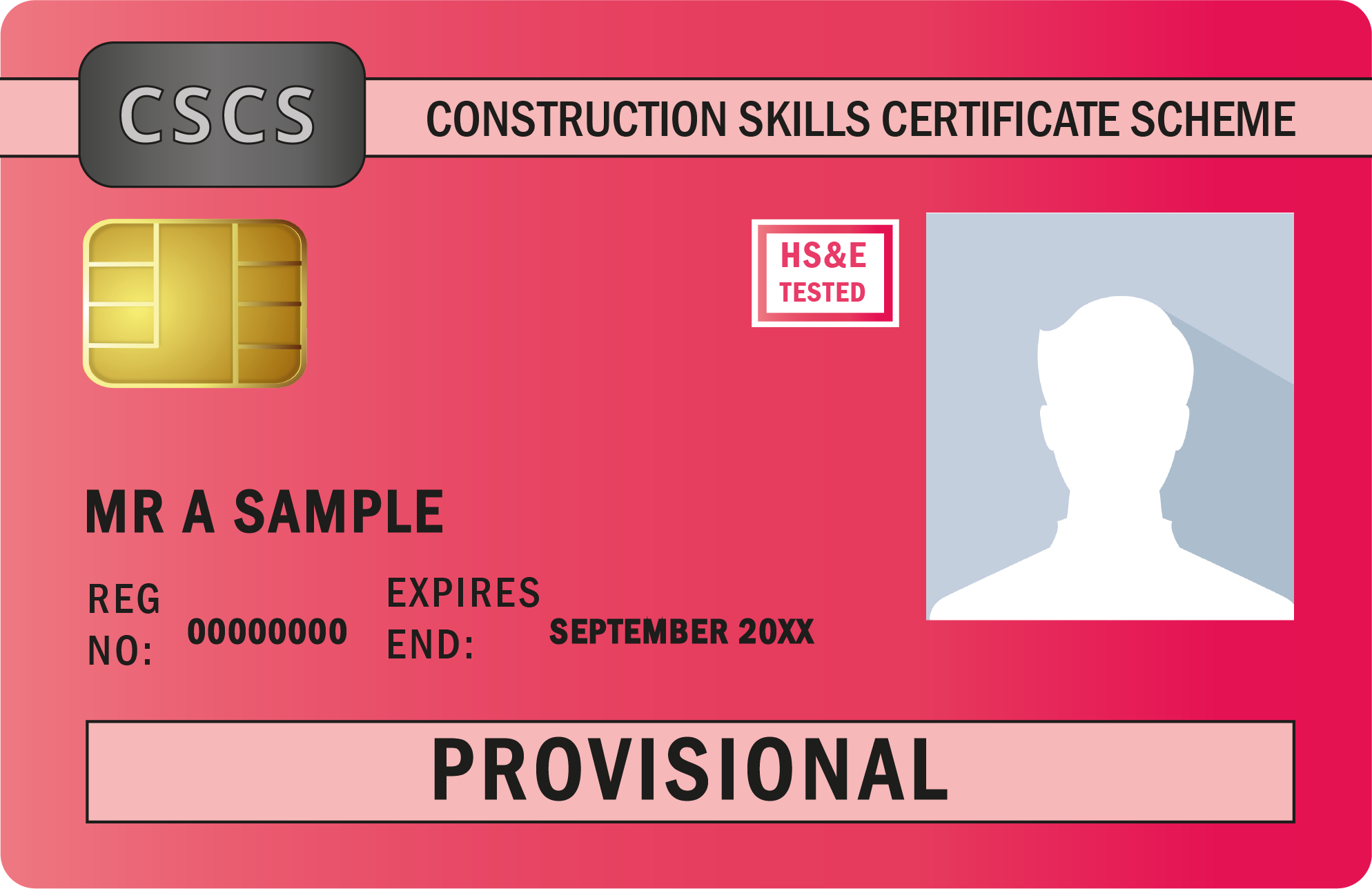 This card is only available if you haven’t had a CSCS card before and is ideal for those who are working through probationary periods while employers evaluate their employment suitability.
This card is only available if you haven’t had a CSCS card before and is ideal for those who are working through probationary periods while employers evaluate their employment suitability.
To apply for this card, you must have passed the CITB Health, Safety and Environment test within the past two years (unless you are exempt – HSE Test and Exemptions).
As with the other red cards this is also not renewable, valid for a period of six months. Before your provisional card expires, the holder must either be registered or achieve a recognised construction related qualification, which is appropriate to their role, and then apply for the correct CSCS card for their job.
How Much Do Red Cards Cost?
CSCS cards cost £36, and the various levels of the CITB Health, safety and environment test all cost £21 (when booked directly with the CITB). If you are being charged more than this by another organisation, then we would always recommend checking what additional services you will receive.
You can call CSCS directly on 0344 994 4777 or email them at cscs@citb.co.uk.
It is important to remember that CSCS cards can only be renewed 6 months before their expiry date and up to 6 months after the expiry date.
Hopefully you now have more knowledge and we have helped to explain Red Cards for you, but if you do have any more questions, please don’t hesitate to contact us here.
Further Information and Support
If you are not sure which CSCS card is suitable for you or what qualifications you may require, then here at ESS we provide a variety of training and NVQ qualifications that will support your CSCS card application.
You can contact us on 0115 8970 529 or by email on info@essentialsiteskills.com to speak to one of our client advisors.
Alternatively the CSCS website has a very useful card finder page where you can search by occupation here.


